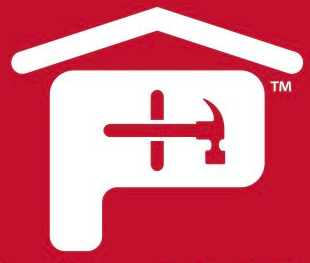Variable energy prices and concerns about sustainability have placed an emphasis on the importance of increasing energy efficiency in construction. Polyiso (polyisocyanurate) insulation is a continuous thermal control material for roof and wall systems and one of the keys to green building, energy conservation, and water vapor resistance.
Polyiso Composition
Polyiso is a closed-cell, rigid foam board insulation. It is manufactured by mixing raw materials with additives and blowing agents. The chemical mix reacts as it is sprayed onto the facers. The insulation foam boards are formed by bonding the facers to each side of the foam on a moving belt laminator. The polyiso product is then wrapped in plastic and shipped from the polyiso manufacturing plant to the building site.
Polyiso board is the only foam plastic insulation that is compatible with all types of rooftops without a thermal barrier. Polyiso wall sheathing also provides a continuous insulation layer over an entire wall, not just in the wall cavaties, making the building much more airtight and energy efficient.
Polyiso Benefits
Polyiso is credited for reducing energy consumptiom in commercial building application because it performs so well as a wall and roofing insulation material. The many benefits include:
-
Moisture resistant, water repellent panel
-
Highest R-value per inch of thickness
-
Resistant to solvents used in construction adhesives
-
Excellent dimensional stability
-
Superior performance in fire tests
-
Recycled content
-
Zero ozone depletion potential
-
Virtually no global warming potential
-
Nationwide availability
These performance features make it one of the most cost-effective insulation products by providing excellent initial installation costs and attractive life cycle payback rates.
The Importance of Moisture Resistance
Among the other benefits of this eco-friendly insulation, polyiso funcions as a weather resistive barrier as part of a complete buiding air barrier system. Its water-repellant panel and moisture-resistant foam core help to reduce condensation in the wall cavity. This is one of the most important attributes since water vapor is an enemy of insulation performance.
A material's resistance to water vapor is determined by testing the product by way of ASTM E96, a standard test method for water vapor transmission. The result is a permeance rating (perm). For example, Atlas® EnergySheild® Polyiso CI typically has a low overall perm rating of less than 1.0.
Insulation that allows air to enter and exit the building can lead to moisture problems caused by the air leaks. After water vapor passes into and condenses in insulation or insulation material, the overall performance decreases. Once it is submerged in water, the insulation benefit disappears completely.
Once properly installed, polyiso Water Resistive Barrier (WRB) systems provide a water tight building envelope eliminating the risk of condensation.




 Gear!
Gear! PRO LOGIN
PRO LOGIN